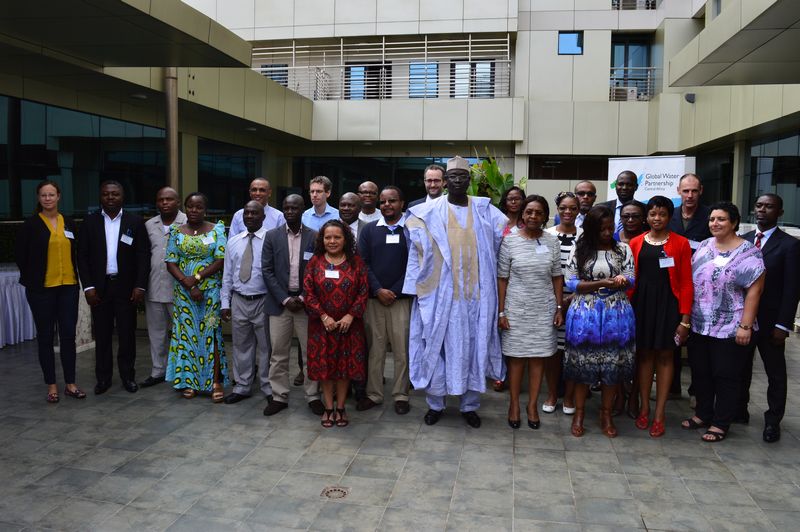Through presentations and discussions that followed, it was clear during the 8th WACDEP meeting that sixteen countries (Six of the initial eight countries that implemented the phase 1 of WACDEP together with ten additional countries) were proposed and approved for implementing the phase 2 of WACDEP. These countries are Cameroon, Central African Republic and Sao Tome and Principe from Central Africa; Uganda and Kenya from Eastern Africa; Burkina Faso, Mali, Senegal, Benin and Ghana, from West Africa; Tunisia and Mauritania from Mediterranean; Mozambique, Zambia, Zimbabwe and Tanzania from Southern Africa) will run the programme over three next years: 2017-2019.
Comprehensive project documents are awaited from the Regions and Country Water Partnerships (CWPs). The expected documents outlining the 3 years’ work plan comprised meaningful activities and budget would enable the WACDEP Coordination Unit to leverage funds at the global level while the local raised funds (LRF) would be the responsibilities of the Regions and CWPs.
As far as the budget issue was concerned during the meeting, it was globally estimated for the next 3 years’ work plan at Euro 12,565,000. This budget was split into two. The global funds allocated by GWP-O were about Euro 5,310,000 and 7,255,000 were expected locally raised funds (LRF).
The WACDEP 2017-2019 will be implemented in five basins and 16 countries on lessons learnt from the WACDEP 2011-2016, emerging priorities for African countries. It will also be aligned with the Paris Agreement and the 2030 sustainable development Agenda.It will also contribute to the realization of the Africa Water Vision and the aspiration of the African Union Agenda 2063. These international agenda and vision are new opportunities for advancing water security and climate change.
Information’s sharing session:
Many lessons learned came out from the implementation of the phase 1 of WACDEP (2011-2016). GWP-CAf shared with other Regions its experiences in NAP processs, GWP EA exposed on SDG 6 Monitoring pilot testing at a Country level, etc.
While from bilateral meetings and south-south learning, Participants stated that the lessons learnt constituted the backbones for building on the implementation of the phase 2 of WACDEP. Because through them bottlenecks, challenges and opportunities were clearly identified and strategies were already developed to overcome some of the challenges. Whereas World Café session that was focused on brainstorming permitted Regions a better understanding of the context of each implemented program: the specificities of each region, the measures taken and the partnerships of implementation.
